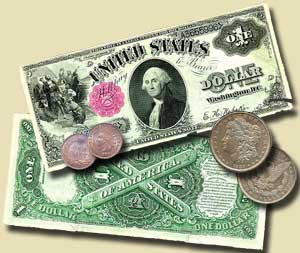Workers Band Together.
While by some accounts the relationship between the Mill and its labor force of about 1500 was friendly, there were numerous disputes over the years. Skilled laborers formed the Sons of Vulcan union soon after the Mill opened, meeting in Puddlers Hall. Union might was tested in 1873 when nine men were fired when they walked out to protest the searing temperatures within the mill. The union responded to the dismissals by effectively shutting down operations when its 900 members stayed off the job.
Men near the blast furnaces, puddlers or boilermakers, would suffer heat as high as 160° F (71° C) blowing off the molten iron. Oatmeal water, sometimes flavored with lemon, was consumed by the bucketful to slake their thirst. An article in the Milwaukee Sentinel in 1881 suggested "None but the men who have worked in these great hives of human industry, among the immense furnaces and molten and seething metal, have any conception of the heat which a mill-hand has to endure while at his hard and tedious labor."
The Petelle boys toiled 10 to 12 hours a day, 6 days a week, for a little more than a $1.00 a day. They received a pay check once a month. Joseph and Edwin worked as nail feeders and Charles as a nail packer, but even with the addition of a new 8 penny machine employment was spotty. The mill cut back operations throughout 1884, shutting down the entire complex in December. The following year workers agreed to a reduction in their pay in order to keep the mill going.

Across the nation, workers were joining unions like the Knights of Labor (Catholics, led by Robert Schilling) or Central Labor (Socialist, led by Paul Grottkau) to push employers for an 8-hour workday, without a reduction in pay. The struggle had been going for years, and sometimes led to violence.
- Retold in "Men of Iron: Millworkers Refused to Melt", The Milwaukee Journal Sentinel, 4 August 2002, by John Gurda
- "Bay View, the Village which Refuses to Lose Its Identity in the City" by Cile Miller, Milwaukee Sentinel, May 14, 1933, scanned image. www.wisconsinhistory.com: "Saturday nights were the gala times in the town; for the workers alternated each week, some working days, others nights. Consequently Saturday was the one time in the week when they could all get together. The fifteenth and sixteenth of each month marked off the pay days; and Bay View was besieged on those days with peddlers and vendors of every description, there to tempt the pay from purses."
- "Labor Quarrels With Capital, Wanting Bi-monthly Payments - Strikes Going on or Ended" The New York Times, April 22, 1884
- Buying power for $1 in 1886 equals about $28.59 in current [2021] dollars from: https://futureboy.us/fsp/dollar.fsp
- Currency image collage
